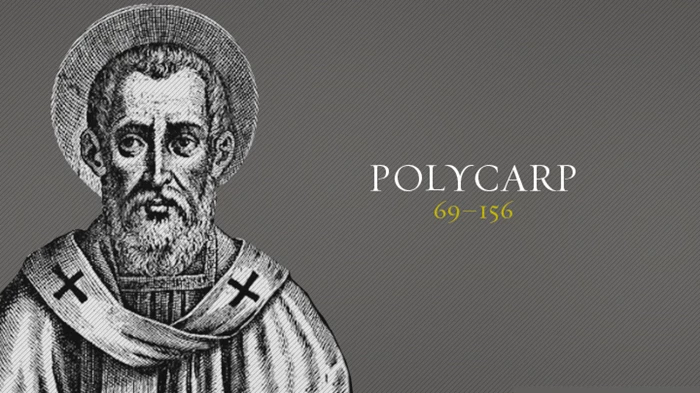Rev. José Mario O. Mandía
jmom.honlam.org
St Ignatius of Antioch, whom we have discussed previously, introduces us to another Apostolic Father – St Polycarp of Smyrna. Polycarp was born between 69 and 70 AD. According to St Ignatius, Polycarp was a disciple of John, “the disciple whom Jesus loved” (John 13:23; 19:26; 20:2; 21:7, 20). Moreover, St Ignatius also says that Polycarp was made bishop of Smyrna by the Apostles themselves.
St Polycarp was martyred probably in February 155 or 156 AD. The Martyrium Polycarpi, which narrates his martyrdom, is “the oldest detailed account extant of the martyrdom of a single individual and is therefore often regarded as the first ‘Acts of the Martyrs’” (Quasten, I, p 77). It was an eyewitness account which, for the first time, defines a martyr as one who dies for the faith.
The Martyrium Polycarpi reported that Polycarp, who was already 86 at the time, was“brought before the Proconsul, who tried to persuade him to recant, saying: ‘Think of your age … change your mind … swear and I will free you. Curse the Christ.’ Polycarp replied: ‘I have served Him for eighty-six years, and he has done me no harm. How could I curse my King who saved me? … Listen clearly: I am a Christian.’” He was bound and burned at the stake, and as the flames did not seem to harm him, he was stabbed with a sword.
The same document also explains the veneration that early Christians had for the martyrs, differentiating veneration from the cult of worship or adoration that is only given to God. “Him we worship as being the Son of God, the martyrs we love as being disciples and imitators of the Lord; and deservedly, because of their unsurpassable affection for their King and Teacher.”
Likewise, the Martyrium includes the prayer of Polycarp before he died. The prayer is an important testimony to early Christian prayer, “not only in the precise trinitarian doxology, but throughout, this prayer reminds one of liturgical formulas” (Quasten, I, p 78).
“O Lord God Almighty, the Father of your beloved and blessed Son Jesus Christ, by whom we have received the knowledge of You, the God of angels and powers, and of every creature, and of the whole race of the righteous who live before you, I give You thanks that You have counted me, worthy of this day and this hour, that I should have a part in the number of Your martyrs, in the cup of your Christ, to the resurrection of eternal life, both of soul and body, through the incorruption [imparted] by the Holy Spirit. Among whom may I be accepted this day before You as a fruitful and acceptable sacrifice, according as You, the ever-truthful God, have foreordained, have revealed beforehand to me, and now have fulfilled. Wherefore also I praise You for all things, I bless You, I glorify You, along with the everlasting and heavenly Jesus Christ, Your beloved Son, with whom, to You, and the Holy Spirit, be glory both now and to all coming ages. Amen” (slightly modified from https://www.newadvent.org/fathers/0102.htm).
There is one existing letter of St Polycarp, the Letter to the Philippians, which is important because it provides historical information and also speaks about some points of dogma.
(1) Christology. St Polycarp defends the doctrine of the Incarnation. He wrote: “For everyone who shall not confess that Jesus Christ is come in the flesh is antichrist: and whoever shall not confess the testimony of the Cross is of the devil: and whoever shall distort the words of the Lord to his own desires, and say that there is neither resurrection nor judgment, this is the first-born of Satan.”
(2) Hierarchy. He does not mention the bishop of Philippi, but he says that the presbyters and deacons have to be obeyed. On the other hand, he reminds the presbyters of their responsibilities to exercise mercy and compassion. We can assume that the Christian community there was governed by a council of presbyters. He also gives advice to the presbyters, exhorting them to be “zealous in the pursuit of that which is good.”
(3) Exhortation to virtue. He encouraged everyone to practice the virtues, above all charity, whenever the opportunity presented itself. “When it is in your power to do good, withhold not, because alms deliver from death.”
(4) Prayer for authorities. Like St Ignatius of Antioch, St Polycarp also encourages us to pray for those who hold authority. “Pray also for kings and powers and rulers, and for them that persecute and hate you, and for the enemies of the Cross, that your fruit may be manifest unto all, that you may be perfect in Him.”


 Follow
Follow


